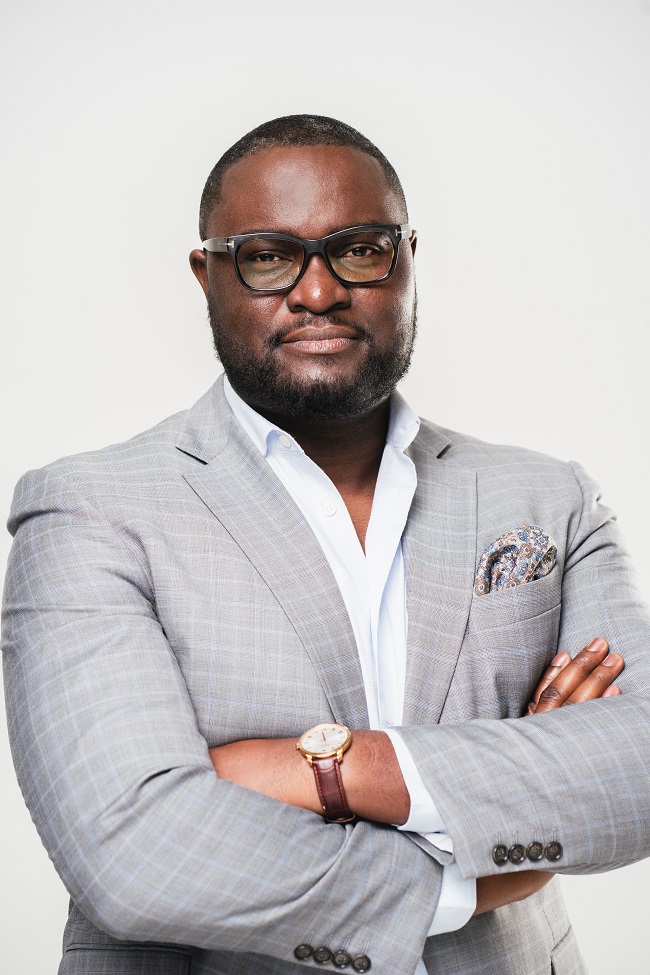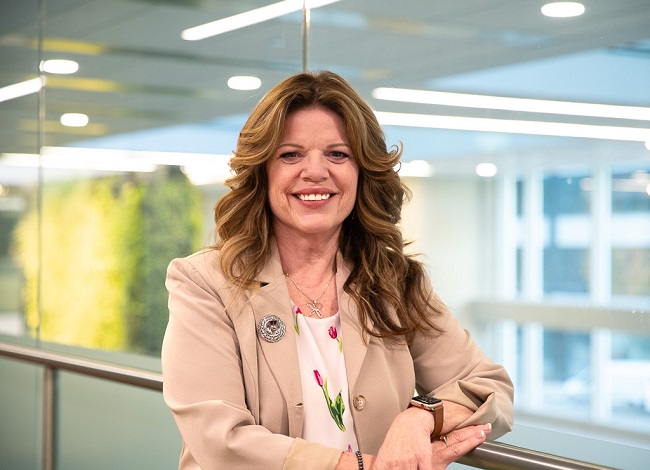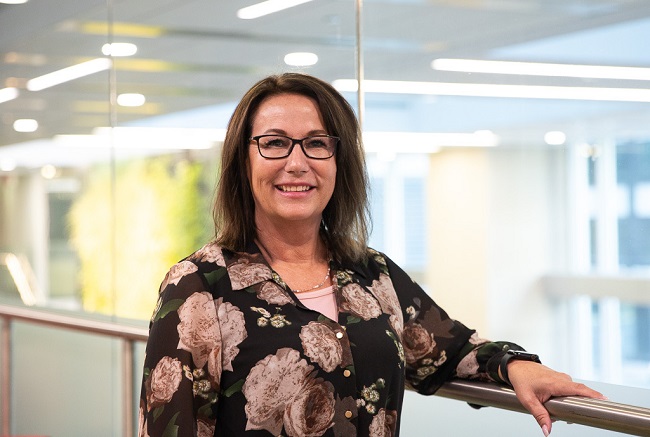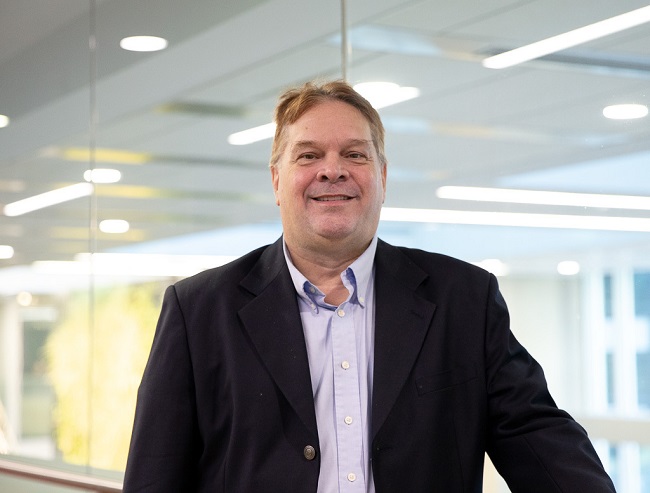The Government of Canada’s restorative engagement program
The Government of Canada outlined in a statement its commitment to fostering a diverse and inclusive public service that is free of harassment, discrimination and violence, including the development of a restorative engagement program. In addition, the Clerk of the Privy Council has set out actions for the public service through the Call to Action on Anti-Racism, Equity and Inclusion in the Federal Public Service.
In Budget 2023, the government committed $6.9 million over two years for the development of a restorative engagement program. The primary objectives of the program are to:
- empower employees who have experienced harassment, discrimination and violence in the workplace
- initiate meaningful cultural change within the federal public service
This initiative shows the government is taking proactive measures to tackle systemic challenges and create a more inclusive and respectful work environment for its employees.
On this page
What is restorative engagement?
Restorative engagement is a way to address harm and foster positive change within individuals, groups, institutions and systems. It places individuals at the centre of this process and focuses on understanding the connections, root causes, circumstances and impacts related to harm. The goal is to identify ways to address harm, promote healing and ensure a better future.
Restorative engagement aims for transformative change by addressing the underlying factors that contribute to harm, promoting deep healing and growth and shifting cultural norms that perpetuate harm. It emphasizes proactive processes designed to nurture relationships, pre-empt conflicts, and prevent harmful behaviours.
The restorative engagement process
The government is dedicated to receiving input from employees throughout the design and implementation of the restorative engagement program. This commitment is rooted in the desire to ensure that the program is responsive to the needs of employees, especially those who have experienced harassment, discrimination, or violence in the workplace. The goal is to empower these individuals to become catalysts for cultural change within the federal public service.
This approach is fundamentally different from traditional public engagement models, as it places a strong emphasis on collaboration, understanding, and achieving sustainable change.
Convening a panel of experts was the first step in designing and putting in place the program for the public service workforce. In the Fall of 2023, the panel engaged across government organizations.
Phase 1: defining the program structure
During the initial phase of engagement, the panel welcomed written submissions from key stakeholders, including employee networks and organizations representing employees from equity seeking groups, bargaining agents, and federal departments and agencies. This phase was dedicated to defining the structural framework (including preferred outcome, design, structure and governance) of the program in a federal government context.
Phase 2: developing a detailed program design
The intention is to give individual employees within the federal public service an opportunity to provide feedback on program implementation. This phase will take a comprehensive look at the characteristics of the program, with a specific focus on program design elements that emphasize learning and well-being, addressing harms while being trauma-informed and culturally responsive and contribute to concrete systemic changes.
Ensuring continuous improvement
Once the program is implemented, ongoing assessment and enhancement of the program's effectiveness will be monitored through collective efforts, ongoing partnerships, and contribution of all participants to build a lasting capacity for and commitment to sustainable change.
Reports
Report on Written Submissions
The Report on Written Submissions, which summarizes the results of the panel’s consultations from October 30, 2023, to December 8, 2023, is now available.
The report outlines key findings from written submissions received from various federal networks and organizations, including those representing employees from equity-seeking groups, bargaining agents, federal departments and agencies, and the interdepartmental advisory working group. The information gathered will inform the government’s recommendations for the design and creation of a restorative engagement program for public service employees.
Recommendations Report
The Recommendations Report, which summarizes the panel of experts’ recommendations following the consultation process, is now available.
This report was written by the external panel of experts to provide recommendations for the design of a restorative engagement program to the President of the Treasury Board. The report has not been edited to maintain the integrity of the panel's recommendations and as such, some of the language used may differ from the language contained in the Report on Written Submissions.
The Government of Canada is now assessing these recommendations and will conduct further meaningful consultation with key partners and communities of practice to ensure the program design meets the needs of public servants.
Panel of experts
In collaboration with an interdepartmental advisory working group, a panel of four recognized experts in clinical psychology, mediation, dispute resolution and restorative practices supported the development and implementation of a restorative engagement program and led the engagement process with various networks and organizations.
The following biographies were provided by the panellists.
Jude Mary Cénat

Jude Mary Cénat, Ph.D., M.Sc., C.Psych., is an Associate Professor in the School of Psychology, Director of the Interdisciplinary Centre for Black Health and of the Vulnerability, Trauma, Resilience & Culture Research Laboratory (V-TRaC Lab) at the University of Ottawa. Dr. Cénat also holds the University Research Chair on Black Health. His research program explores factors associated with vulnerability, trauma and resilience; racial disparities in health and social services; and global mental health. He conducts research in North America, Europe, Africa, and the Caribbean.
He leads major projects on the mental health of Black communities in Canada that have documented for the first time prevalence and factors related to depression, anxiety, PTSD, psychosomatic symptoms, substance use, and other mental health issues among Black individuals in Canada. With his team, he co-developed with the communities innovative and interdisciplinary projects that influence public policies, help reduce racial disparities in health and social services, and build collective resilience. They also developed online trainings that aim to equip mental health professionals to provide culturally appropriate and anti-racist care and educators to create racially and culturally safe schools. Dr. Cénat is also a member of the College of New Scholars, Artists and Scientists of the Royal Society of Canada.
Linda Crockett

Linda Crockett is a pioneer, activist, advocate and trailblazer in Canada, and a known international expert on the topic of workplace psychological harassment. She graduated with an Advanced Clinical master’s degree in social work with a specialization in addressing the psychological, physical and emotional effects of workplace bullying. Linda has become the first professional social worker and qualified trauma therapist to publicly share her experiences of workplace bullying and her path to recovery. As a result of her experience, she created and founded the first, triple award-winning full-service centre, The Canadian Institute of Workplace Bullying Resources (CIWBR). The Institute is a for-profit agency offering trauma-informed services to all professions, industries and communities. Its work includes prevention, intervention and repair or recovery strategies, solutions and options. All services are trauma-informed and include risk assessments, consultations, training, mentoring, as well as coaching and counselling combinations. She works with leaders, human resources, investigators, safety officers, unions, medical teams, insurance, lawyers, First Nations people, Métis, Inuit, seniors, youth, people with disabilities, domestic violence survivors returning to work, and employees (individuals or groups).
CIWBR uses a holistic perspective, as Linda believes that all parties involved, including complainants, witnesses and respondents, need safe, supportive, confidential, trauma-informed resources, offering evidence-based best practices, with a wide range of skills to address complex systemic issues of workplace bullying, including the internal and external institutional layers of betrayal and, very importantly, the subtle nuances of this epidemic. CIWBR aids organizations and individuals at any stage, be it preventive, new or crisis, restore, repair or recovery.
Linda is also the recent founder of a not-for-profit resource, the Canadian Institute of Workplace Harassment and Violence (CIWHV). This resource is specific to injured workers seeking financial assistance with recovery and legal information and will be launched publicly in fall 2023.
Gayle Desmeules

Gayle Desmeules is an Indigenous mediator, facilitator and trainer with 30 years’ experience designing one-to-one and multi-party dispute resolution and engagement processes where people feel respected, heard, safe and supported to engage in real conversations. Gayle earned a Master of Arts in Leadership and Training from Royal Roads University with honours and is a Q. Med (Qualified Mediator) and member of ADR Institute of Alberta and Canada. Skilled in interest-based mediation, restorative practices and peacemaking circles, she’s a firm believer that a community’s capacity to resolve conflict flows from social capital: levels of trust, mutual understanding, reciprocity, and a shared sense of values to make collaborative action possible.
She is the founder and chief executive officer of True Dialogue Inc., which provides customized training, facilitation, mediation and consulting services in restorative resolution services. She is a roster mediator for the Alberta Justice and Solicitor General Family Mediation Program and the Edmonton Police Service to resolve public complaints. As a Métis person and child of a residential school survivor, Gayle has a unique understanding of the impact of colonization (intergenerational trauma) on community relations and of practical ways to advance the process of reconciliation to promote community wellness.
In her view, all human beings have a strong, innate sense of justice. When we are treated in ways we judge as being unfair or disrespectful, we feel we have been treated unjustly. Justice is not something defined by law. Human beings view every relationship in their lives as either just or unjust. Relationships that are felt to be unjust elicit negative emotions, such as anger and resentment, often motivating people to take action to correct the imbalance or injustice or to disengage. Relationships that are felt to be fair and just support a culture where individuals and workplaces thrive.
The panelist's biography is also offered in Plains Cree.
Gayle Desmeules awa iyiniw omiyo-wîcihitahowêw, onîkânêw, êkwa okiskinwahamâkêw ayiwâk nistomitanaw askiy ê-osihtât 1-1 êkwa miyo-wîcihitowin êkwa mâmawi-pîkiskwâtitowin ita kâ-nanitohtân, kâ-kanawiyimêht êkwa kâ-sihtoskât ayisîyiniw. gale awa masters of arts onîkânîwin êkwa okiskinwahamâkêwin ohci anita royal roads university êkwa honours kî-miyâw, q-med, êkwa mîna wîcihowêw adr institution anita alberta êkwa Canada. kaskihow kwayask ôma mâmawi-pîkiskwâtitowin, kwêskastâwin, tâpwakîyihtam kâ-kaskiyihtamâsiwak ayîsiyiniwak ka-mâmawi-atoskâtahkik kîkway ê-miywâsiyinêk: miyo-wîcihitowin, nanistohtâtowin, wâsakâpîkiskwêwin, mîna miyo-mâmawi-atoskêmitowin.
ôma kâkî-ohpina êkwa nîkânêstam true dialogue inc., êwako kâ-kiskinwahamâkê, kâ-sihtoskakê, kâ-wîcihitâhk, êkwa kâ-wîci-atoskêmât awiya kâ-nohtê-miyo-wîci-atoskêmikê. ôhi wîtakoskêmêw alberta wîyasiwêwina êkwa kâ-wîcihâcik pêyakohêwâmak êkwa amiskwaciy wâskahikan simâkanisak ka-wîtatoskêmâcik êkwa ka-nanitohtâkêcik. awa apihtawikosisân-iskwêw, êkwa kâkî-maci-paminêht kiskinwahamâtowikamikohk, gayle kaskihow ka-nisitohta ôma kâkî-pê-isi-paminêt awa iyiniw êkwa tânisi ka-isi-kwêskinamihk ôma ta-miywâyahk. ômisi-isi itwêw:
kahkiyaw iyiniw sohkêyihtam kwayasâtisiwin. kîspin ôma môy kwayas kîkway itâpahcikâtêw, kimosihtân mâna. miyo-wîcihitowin ôma môy kîcinân masinahikâtêw wiyasiwêwinihk. ayîyisiniw awa kitâpahtam wâhkôhtowin kwayas êkwa atiht môy kwayask. kîspin êkosi kâ-ispayêk kimôsihtân, askaw atiht ayisiyinwak kâ-waskawîyitotamok ôhi môya kâ-miywâsiki kîkway. wâhkôhtowin ôma kwayas ka-isi-kitâpâcikâtêk êkwa sihtoskamok pimâtisiwin êkwa wîcatoskêyimitowin.
Robert Neron

Robert Neron is bilingual and of Aboriginal (Métis) descent, and a Senior Arbitrator and Workplace Investigator with over 26 years of legal experience who has arbitrated several workplace grievances and complaints in the public and private sectors. He is a member of the Law Society of Ontario and was a member of the Law Society of Nunavut for 10 years. His ADR law practice focuses on the areas of employment, human rights, Aboriginal law and administrative law. He is valued for his capacity to provide advice, including the adjudication of administrative issues regarding a wide range of employment and labour issues: terminations, policies and procedures, absenteeism, discipline, the duty to accommodate, performance management, discrimination, harassment, hiring and general management of employees.
For seven years, Mr. Neron was also an adjudicator for the Independent Assessment Process (IAP) of the Indian Residential School Secretariat. In addition, Mr. Neron has extensive experience conducting workplace investigations in the public service and has assisted numerous non-governmental and governmental organizations finding alternative solutions to staff relations disputes, after having conducted thorough investigations.
The panelist's biography is also offered in Inuktitut.
ᕌᐳᑦ ᓃᕌᓐ ᒪᕐᕉᓐᓂᒃ ᐅᖃᐅᓲᓐᓂᒃ ᐊᑐᓲᖅ (ᐃᖅᑭᓕᒃ), ᐃᖅᑲᓇᐃᔭᖅᑎᓄᑦ ᐊᖏᔪᖅᑳᖑᓪᓕᓂ ᐃᖅᑲᖅᑐᐃᖃᑦᑕᖅᑐᓄᒃ ᕿᒥᕐᕈᔨᐅᔪᓂᒃ ᖃᐅᔨᓴᖅᑎᐅᓪᓗᓂ ᐅᑭᐅᓄᑦ 26−ᓄᑦ ᒪᓕᒐᓕᕆᕕᒻᒦᓕᖅᑐᖅ, ᑲᒪᖃᑦᑕᓲᖅ ᐃᖅᑲᓇᐃᔭᕐᕕᓐᓂ ᐅᓐᓂᕐᓘᑕᐅᓯᒪᔪᓂᒃ ᓈᒻᒪᒋᔭᐅᓐᖏᑦᑐᓂᓪᓗ ᑭᒃᑯᑐᐃᓐᓇᐃᑦ ᐊᓪᓚᕕᖏᓐᓂ ᓇᒻᒥᓂᖃᑏᓪᓗ. ᒪᓕᒐᓕᕆᔨᒃᑯᓐᓄᑦ ᓴᓴᐃᔭᑎᖏᓐᓄ ᐃᓚᒋᔭᐅᒻᒥᔪᖅ ᐊᓐᑎᐅᕆᔪᒥ ᐃᓚᒋᔭᐅᓚᐅᖅᓯᒪᒋᓪᓗᓂᓗ ᖁᓕᓄᑦ ᐊᕐᕌᒍᓄᑦ ᓄᓇᕗᒻᒧᑦ. ADR−ᖓ ᒪᓕᒐᓕᕆᔨᐅᖃᑦᑕᑎᓪᓗᒍ ᑲᒪᓗᐊᓐᖑᐊᖅᑐᖅ ᐃᖅᑲᓇᐃᔭᕐᕕᓐᓂᑦ, ᐃᓄᐃᓪᓗ ᐱᔪᓐᓇᐅᑎᖏᓐᓂ, ᓄᓇᖃᖅᑳᖅᑐᓂᑦ ᒪᓕᒐᖏᓐᓂ ᐊᓪᓚᕕᓕᕆᓂᕐᒥᓪᓗ. ᐅᑉᐱᕆᔭᐅᑦᑎᐊᖅᑐᖅ ᑕᑎᒋᔭᐅᑦᑎᐊᖅᑐᓂᓗ ᐅᖃᐅᔾᔨᒋᐊᕆᓲᖅ ᐱᑦᑎᐊᖅᑕᐅᖃᑦᑕᖅᓯᒪᓐᖏᑦᑐᓂᒃ ᒪᑯᓂᖓᓗ ᐃᓱᒪᓕᐅᕆᐊᖃᖅᑎᓪᓗᒋᑦ ᐊᓪᓚᕕᓕᕆᓂᕐᒥᑦ ᐱᑦᑎᐊᖅᑕᐅᓂᓐᖏᑦᑐᓂᒃ ᐃᖅᑲᓇᐃᔭᕐᕕᓐᓂ ᐃᖅᑲᓇᐃᔭᖅᑐᓕᕆᓂᕐᒥᓪᓗ: ᐊᕕᑕᒥᓂᕐᓂᑦ, ᐱᖁᔭᕐᓂᑦ ᐊᑐᐊᒐᕐᓂᓪᓗ, ᐃᖅᑲᓇᐃᔭᓐᖏᑦᑐᓂᒃ, ᐃᓂᖅᑎᕆᐊᓕᓐᓂᒃ, ᑲᒪᒋᔭᐅᒋᐊᓕᓐᓂᒃ ᐃᖅᑲᓇᐃᔭᖅᑏᑦ ᖃᐅᔨᓴᖅᑕᐅᓂᖏᓐᓄᑦ, ᑕᐃᒫᓪᓗᐊᖅ ᑲᒪᒋᔭᐅᓐᓂᖏᑦᑐᓂᒃ, ᐸᕝᕕᓴᑦᑕᐅᓯᒪᔪᓂᒃ, ᐃᖅᑲᓇᐃᔭᖅᑎᑖᕐᓂᕐᒥᑦ, ᐊᓯᖏᓐᓂᓪᓗ ᐊᐅᓚᑦᑎᓂᓕᕐᒥᑦ ᐃᖅᑲᓇᔭᐃᖅᑎᓂᒃ. ᐅᑭᐅᓄᑦ 7−ᓄᑦ, ᓃᕌᓐ ᖃᐅᔨᓴᖅᑎᐅᓚᐅᖅᓯᒪᒻᒥᔪᖅ ᐃᒻᒥᒃᑯᑦ ᖃᐅᔨᓴᕐᓂᕐᒨᖓᔪᓂᒃ (IAP) ᐊᓪᓚᓂᑦ ᐃᓕᓐᓂᐊᕆᐊᖅᑎᑕᐅᓚᐅᖅᓯᒪᔪᓂᒃ. ᐊᒻᒪᓗᒃᑲᓐᓂᖅ, ᓃᕌᓐ ᐱᓕᕆᖃᑦᑕᖅᓯᒪᔪᖅᐹᓗᒃ ᖃᐅᔨᓴᖅᑐᓂ ᐃᖅᑲᓇᐃᔭᕐᕕᓐᓂᑦ ᑭᒃᑯᑐᐃᓐᓇᐃᑦ ᐱᔨᑦᑎᕋᖅᑎᖏᓐᓂ ᐃᑲᔪᖃᑦᑕᖅᓯᒪᓪᓗᓂᓗ ᐊᒥᓱᐊᖅᑎ ᒐᕙᒪᑯᓐᓂᐅᖏᑦᑐᖅ ᒐᕙᒪᒃᑯᓂᓪᓗ ᖃᓄᖅᑑᕋᓱᐊᖃᑦᑕᖅᑐᑎᑦ ᐃᖅᑲᓇᐃᔭᖅᑏᑦ ᐊᑲᐅᓐᖏᓕᐅᕈᑎᓖᑦ, ᖃᐅᔨᓴᑦᑎᐊᓚᐅᖅᑎᓪᓗᒋᑦ.
Interdepartmental advisory working group
The interdepartmental advisory working group is made up of public servants from various departments and agencies who have expertise in the following:
- diversity and inclusion
- prevention of harassment and discrimination
- conflict management
- labour relations
- disability management
- restorative practices
This group will provide their expertise and guidance throughout the engagement and design phases of the restorative engagement program.
Timelines for 2023–24
- Fall 2023: Panel of experts convenes and leads stakeholder engagement.
- Winter 2024: “Report on Written Submissions” is published.
- Spring 2024: Treasury Board of Canada Secretariat submits recommendations for the design of a restorative engagement program.
Mental health support is available
The topics of harassment, discrimination and violence can trigger trauma. For employees who experience emotional distress and want to talk to someone, free counselling is available 24 hours a day, 7 days a week, through the Employee Assistance Program (EAP). Please consult the link below to find your Employee Assistance Services contact information.
Find your organization’s Employee Assistance Program provider - Canada.ca
Contact us
For general enquiries about the Government of Canada’s restorative engagement program, contact:
Office of the Chief Human Resources Officer
Treasury Board of Canada Secretariat
Email: REP-PDR@tbs-sct.gc.ca